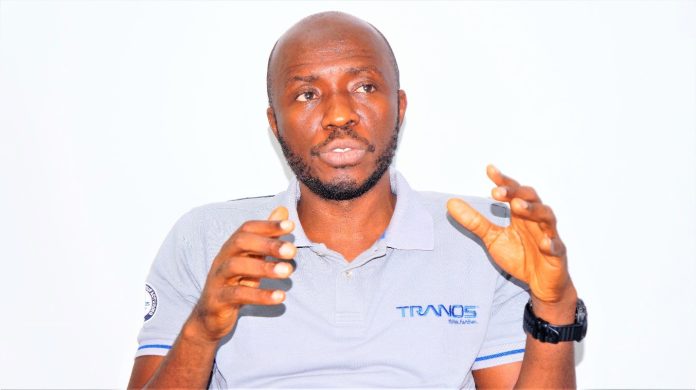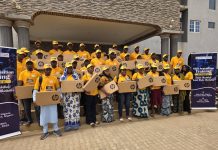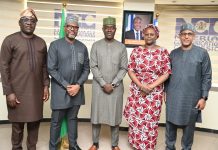In an exclusive interview with Mr. Jude Abalaka, the CEO of TRANOS Energy, a leading indigenous energy firm based in Lagos, we gain unique insights into the company’s latest innovations. Mr. Abalaka expounds on the groundbreaking hybrid generators designed specifically for the telecommunications industry. Moreover, he underscores the strategic importance of TRANOS Energy’s recent milestone – the inauguration of a cutting-edge gasket manufacturing facility within Nigeria’s borders. Join our correspondent, Anthony Nwosu, as he delves into this stimulating conversation, exploring the pioneering advancements shaping the energy sector and manufacturing landscape in Nigeria.
The company has been doing a lot in the Engineering and Manufacturing space. How can you describe Tranos as an organization?
As an organization, we are essentially a technology-oriented company. Our focus is on using our products and solutions to influence lives and make them better. We have solutions designed for various industries such as the Oil and Gas, Telecoms, Real Estate, and Energy sectors through our numerous designs and fabrications processes we have set a world-class standard in safety, quality, and efficiency. As a highly innovative company, our services include the manufacturing of high-quality products in power generation, energy distribution, control, and automation as well as manufacturing of enclosures.
Can we know the strides that you have made in 2021?
We are not a power generating firm, but we have products for power generation and distribution problems. Coming back to the question, Covid-19 has changed the way businesses are done across the globe. We are soldering through it although it changed our plans such as product introduction and expansion of our capabilities and speaking of the strides that we have made this year; we launched our production at our second facility. So as of today, we have the largest cable manufacturing facility in Nigeria and possibly in West Africa to produce gaskets and cable management systems. For our clients, what this means is that the things that they struggle to import, we have the capacity to in manufacture them locally. Although the pandemic has slowed things down, we have been able to put our heads together and conclude on projects that we have started pre-pandemic. We strongly believe in improvement; we always have something that we are doing to improve either through a partnership or introducing products and solutions.
Your manufacturing and production facilities are massive, how do you cope with the product acceptability in Nigerian and how do you compare with the ones in China and Europe?
Fortunately for us, our product development is our niche, we focus on quality first. We expect that when we are developing products, we focus on the relevant industries we cater to. These industries focus on quality and high standards. We do not want to develop a product that will fail in terms of quality and other factors. We are competing with products from Europe and Asia. In terms of acceptability, we have overcome that, though there was a bit of friction initially. We have firms that rely on our products, and we are integrating our products into various industries and ecosystems.
Do you have presence in the ECOWAS region?
We do not have plants in the other West African countries for now, but we are beginning to receive orders from countries within the ECOWAS region. We might or not have a physical presence in these countries, that is a decision we are yet to make, but what we are certainly hoping to do is to ensure that we have customers spread around Africa.
“We integrated this technology where if there is enough sunlight, there is no need to have the generator being powered by diesel but if there isn’t, then the generator switches automatically to diesel. We also came up with a solution that run on gas not even on diesel which is cheaper. The advantage of this generator is that it doesn’t run on natural gas because there is no need to start building gas pipelines to all base station. We do not use compressed natural gas (CNG) we developed a generator that runs on cooking gas (LPG).”
As a stakeholder in the energy space, what are your advice to the government in the area of power generation and distribution?
The government is on track now in terms of the direction and approach they are taking in the energy sector. We have seen a lot of projects and renewables coming up. We have also seen private firms getting licenses for captive power generation. The problem we have is power isn’t a technology problem but a commercial. It is all about the economics and the cost per kilowatt of power. If the price is good and the industry is buoyant enough, then power generation firms will generate and be paid for it, and the distribution effective. If we can continue along the trajectory of ensuring that power generation and distribution are commercialized fully then we can have a robust energy space. But the government is on the right track.
Can you tell us about your hybrid power solutions for the telecoms industry?
Our hybrid power solution has been developed specifically for the telecom base stations. We have been in that industry for years now. We have a generator system that works with solar power and diesel. We integrated this technology where if there is enough sunlight, there is no need to have the generator run on diesel but if there isn’t, then the generator switches automatically to diesel. We also came up with a solution that runs on gas, not on diesel. The advantage of this generator is that it doesn’t run on natural gas because there is no need to start building gas pipelines to all base stations. We do not use compressed natural gas (CNG) we developed a generator that runs on cooking gas (LPG).

What are the advantages of the LPG run generator to the CNG run generator?
The advantages are numerous, unlike the compressed natural gas generator where you need a gas pipeline, in the LPG gen set, you do not need this and, the CNG is also difficult to transport. It is usually transported under heavy steel but not the cooking gas or the LPG generators and diesel which is easily stolen and causes spillage. Our LPG generator is environmentally friendly, the emission from the gen-set drops significantly and, the cost of product transportation is reduced. There are a lot of advantages to our LPG generator solution. With this type of generator, the cost of maintenance is reduced, and we have it on a lot of sites in Nigeria. The stealing of diesel has been eliminated; sites are running more efficiently and, maintenance intervals are much longer. With the diesel solution, you are meant to maintain it every 250 hours while on gas we are looking at 2,500 hours. So, you get higher reliability and reduced operational expenditure (OpEx) for the organization.
How have you been able to build capacity in fabrication for oil and gas sector?
We try to focus on three things when it comes to being able to have the resources to satisfy customers. The first is human capital, the second is knowledge and the third is equipment. Our focus is to be a world-class firm and for us to achieve this, we need to be equipped and that means we need the requisite tools. We have made that capital investment. Then we look at knowledge, even if you have the best equipment and you do not have very critical knowledge and we have invested in human capital. Our system is designed to train, we are always training and retraining. When it comes to fabrication, you need good design engineers, welders, etc. we have been able to train this year, it is an annual thing for us, there was a time we brought in a trainer from overseas, retrain our in-house welders and then we enlisted some fresh female graduates from technical schools, universities, and polytechnics, we trained and retained some of those ladies at the end of the program, they are still with us till this day. We are big on gender balance here at Tranos. We are an ISO-certified company, as an ISO 9001 compliant firm we have a clear process for meeting the requirements for production and fabrication. We maintain this process and that is how we have been able to maintain our quality so far.
As a firm that offers excellent fabrication services, have you been able to partner with the public sector in any way?
Our ethos is on providing value, if we are going into any partnership, we try to provide value. Within Lagos we see all sorts of funny enclosures, we can correct these designs. With the quality of our enclosures, the government can get a world-class enclosure. In the housing space, we have a lot of products and we have gone into partnership with various reputable companies that are based overseas.
What do we expect from Tranos this year?
Thankfully 2021 has come to an end, this year we are looking to continually deliver products and services that add value to lives anywhere and everywhere. We are also looking at dipping our feet into new terrains where our products and services are needed. As an innovation-driven company, our mission is to continue in the path of delivering to make lives easy for our world.
“Our LPG generator is environmentally friendly and the emission from the generator set drops significantly and the cost of product transportation reduced. There are a lot of advantages in our LPG generator. With this type of generator, the cost of maintenance is reduced and we have it on a lot of sites in Nigeria. The stealing of diesel has been eliminated; sites can be run more efficiently. Your maintenance intervals are much longer. In diesel you are meant to maintain it every 250 hours while on gas we are looking at 2,500 hours. So, you get higher reliability and reduced operational expenditure (OpEx) for the organization.”








